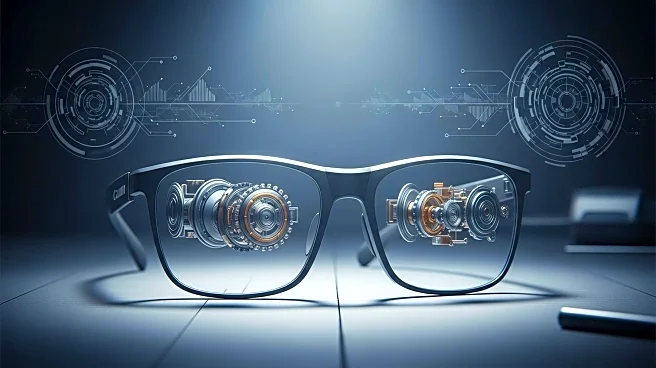What's Happening?
Meta has launched its first pair of smart glasses with a heads-up display, the Meta Ray-Ban Display, priced at $800. These glasses allow users to interact with apps, view messages, and use the display as a viewfinder for photos and videos. However, a teardown by iFixit reveals that the glasses are difficult to repair due to their custom components and lack of available replacement parts. The battery replacement process is particularly challenging, requiring the device to be split along a glued seam, which compromises its splash resistance. Despite these challenges, the teardown shows that accessing internal components like the battery, speakers, and motherboard is possible, albeit risky.
Why It's Important?
The repairability of consumer electronics is a growing concern, as it affects the longevity and sustainability of products. Meta's smart glasses, with their complex design and limited repair options, may deter consumers who prioritize device longevity and environmental impact. The difficulty in repairing these glasses could lead to increased electronic waste, as consumers may opt to replace rather than repair. Additionally, the high price point and repair challenges may limit the accessibility of this technology to a broader audience, impacting Meta's market reach and adoption rates.
What's Next?
As Meta continues to develop its smart glasses technology, improvements in repairability could enhance consumer satisfaction and reduce electronic waste. The company may need to consider offering more accessible repair options or replacement parts to address consumer concerns. Additionally, the success of these glasses in the market could influence the development of future models, potentially leading to more repair-friendly designs. Stakeholders, including environmental groups and consumer advocates, may push for better repairability standards in the tech industry.
Beyond the Headlines
The repairability issue highlights broader ethical and environmental concerns in the tech industry, where rapid innovation often leads to increased electronic waste. As consumers become more environmentally conscious, companies like Meta may face pressure to design products that are easier to repair and recycle. This could lead to a shift in industry standards, promoting sustainability and responsible consumption.









